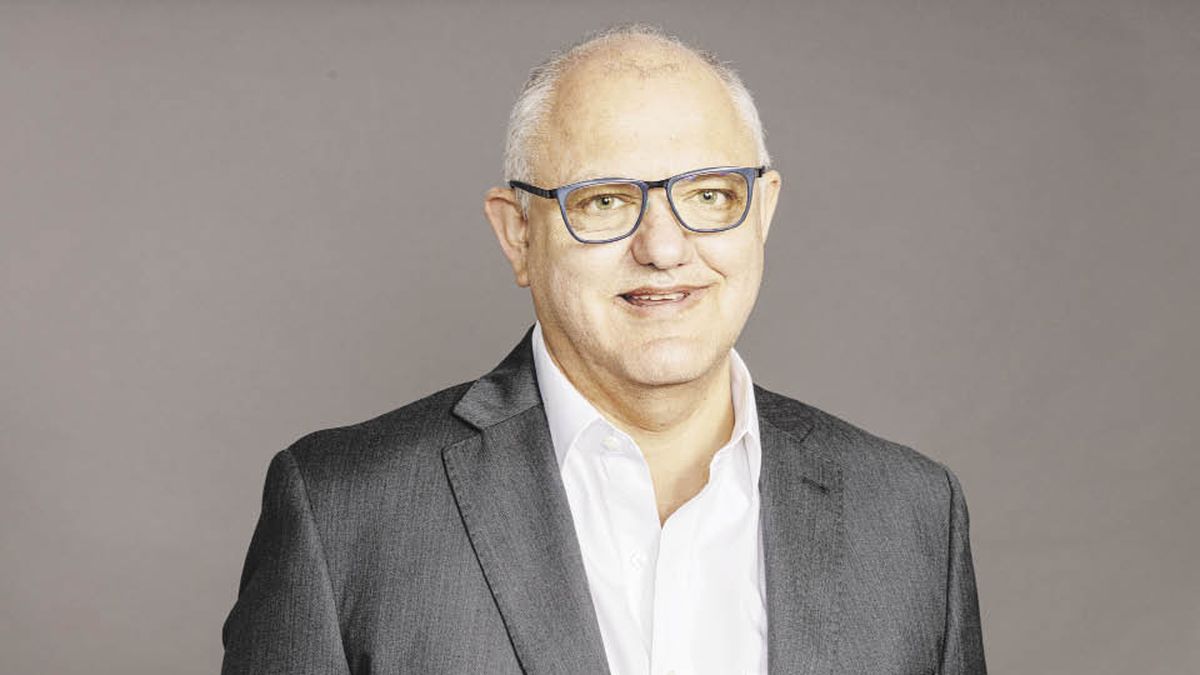Javier Timerman: CER bonds were coming off a rally that intensified in March with the war when the market began to see a single risk: inflation around the world. The outflow due to flows in May begins the correction and this fall is closely connected with a risk of debt rollover, but during this administration: the last tender had already gone very badly and the market is beginning to see that Central Bank measures may appear forcing banks to increase positions in the Treasury.
Q: Does the expectation of a jump in the exchange rate impact?
JT: The high levels of inflation suggest that there will be no choice but to devalue, and that makes CER bonds less attractive. That explains why the bailouts are going to the CCL or to the dollar link. But there is no single cause. She started to get scared because suddenly most of the government’s ability to issue more debt was tied to the CER. Add the discussion about a possible reprofiling, which was thought to be post-election. That is why at the beginning the debt that suffered the most was that of the past elections.
Q: Are there conditions for a reprofiling?
JT: Personally, I think not, whoever the government was. All of us who are in this market understand that it was a The reprofiling of the previous government was a mistake, and I believe that this lesson is assumed by the policymakers. It would damage Argentine credit, public and private, and the future recovery of the economy. But the market has to take the necessary precautions, because this has already happened in the past. That this discussion begins to circulate alters the sentiment of the market. The quality of our credit should be State policies and potential policymakers should clarify their positions to reassure the heritage of all Argentines.
Q: Why do you personally believe that a reprofiling is not possible?
JT: It’s like aggressive debt restructuring, later it ends up being more expensive, in fact after 2020 we never had access to credit. The same with a reprofiling. If you do something to take advantage of a situation thinking that it will alleviate the present, in the long run they end up charging you in another way.
Q: Does the current economic team have this same look?
JT: I think so, and otherwise it would be a mistake. They are going to have to give signals that the market is demanding, such as compliance with the agreement with the IMF. Also solve in some way this gap that prevents the accumulation of reserves, despite the record of exports. All the foreign funds I talk to look closely at reserves because they think that’s the problem.
Q: To whom do you attribute the versions of a possible recasting?
JT: To no one in particular, it’s natural that it happens. Although Argentina’s debt is low, when you measure it in all forms of debt-output measurement, or debt in public hands relative to private hands, it is a sustainable debt. But given the sensitivity of our credit history, especially what happened in the last government that redefined the debt before the end of its mandate, it is logical that the market is concerned about what they will do if they return. With our credit history, the effort has to be made by the entire political-economic establishment to reassure the market. Because otherwise the market is like a horse: you have to get on and tame it, if you let it walk alone it’s dangerous.
Q: Speaking of politics in general, what should the two coalitions do?
JV: The opposition should not be held responsible for what is happening. Just as in 2019 I thought that Alberto Fernández should go out and speak, It is important given the volatility and the risks that exist, which will end up affecting everyone who has ambition for power, that they explain their plan as soon as possible. Part of your commitment should be to go out and say as clearly as possible what they would do with the debt in pesos, so that this fear of reprofiling is reduced. And in the ruling party, the best thing is that they agree on an economic policy and carry it out, implementing it with a single head, that it is not all a tug of war. And start accumulating reserves.
Q: If you return to Together for Change in 2023, could you re-profile?
JT: The reprofiling measure at the end of 2019 was a last measure in a very particular context that forced us to choose between the worst of evils. I think that a government that can start with some confidence in the local market should be able to roll it over without problems: we are talking about only 7% of GDP of debt in pesos in private hands.
Q: What do you think could happen with the exchange rate gap?
JT: It is going to be expected that part of this debt will go to the CCL, but as long as the dollar rises calmly, I do not see this ending in a currency run. It’s not what we’re seeing. Part of the money goes to money market funds and not to the dollar. It seems to me that the government should hurry to make interventions, it is the only way given the drama of the falls and because the peso curve is the most important asset to be financed.
Q: How did you see the intervention of the Central Bank on Thursday?
JT: It is a suitable strategy, but it should have been earlier. What I see in the central banks of the world is that when they intervene they have to put all the ammunition as soon as possible, little by little it does not work. Because once the market begins to think that you are not willing to support your own debt, the consequences are what we saw. There is little time for the next rollovers, you need the debt to return to normal rates.
Q: Going forward, what will happen to the CER bonds?
JT: It seems irrational to me that the debt yields 20 points above inflation, because there will be no reprofiling. When the market calms down it should stabilize.
Q: Why is the program with the IMF not working to reassure the market?
JT: Because there is still no ownership of the economic program: of the two main coalitions that approved it in Congress, neither approved the economic terms for different reasons. What was needed was that both forces could agree on long-term policies, but we got the opposite.
Source: Ambito
David William is a talented author who has made a name for himself in the world of writing. He is a professional author who writes on a wide range of topics, from general interest to opinion news. David is currently working as a writer at 24 hours worlds where he brings his unique perspective and in-depth research to his articles, making them both informative and engaging.




